Heal Your Gut, Heal Your Mind
The key to a healthy brain lies in the gut
Are you among the 20 percent of adults suffering from anxiety and depression?
Find out how nourishing your gut microbiome can make you happier and more relaxed.
Your gastrointestinal system is extremely important to your overall wellbeing. Since it is largely responsible for the critical functions of your body’s digestive and immune systems, beneficial bacteria in your digestive system have the capability of affecting your body’s immune response, vitamin and mineral absorbency, hormone regulation, digestion, toxin eliminations, and last but not least your mental health.
The concept of “gut and brain” connection has been known for sometime.
Do you know that there are 100 million or so nerve cells that exist throughout your entire gastrointestinal lining? Those nerve cells, or “ENS” (Enteric Nervous System) control digestion by communicate back and forth with the brain as to the overall health of your gut health and in turn, its immune system. In other words, your gut bacteria have a direct impact on your emotions, behaviours, and thought patterns and have been referred to as the “ second brain .”
Generally speaking, your gut health depends on the balance between the beneficial and the harmful bacterias. “Dysbiosis” happens when there are too many of the “bad bugs,” such as yeast, bacteria, and sometimes parasites tip the balance, and there is not enough of good bacteria in your system. The imbalance damages the smooth intact mucosal layer in the GI lining; making the gut become permeable and thus allowing food proteins to enter into the bloodstream (known as “l eaky gut”, which triggers immune responses such as inflammation, food sensitivities, and many other symptoms both in the GI system and throughout the whole body. Symptoms related to poor gut health can be:
- abdominal pain
- bloating after meals
- acid reflux or flatulence
- headaches
- fatigue
- joint pain
Research has shown that when the gut is irritated or inflamed from food sensitivities or overly processed foods, the communication system between the brain and the gut is alerted. The ENS system signals the body’s Central Nervous System (CNS), which can then trigger mood changes and alter a person’s view of their world. Individuals suffering from bowel-disorders such as Celiac disease, irritable bowel syndrome, or leaky gut are more likely than others to also suffer from autoimmune diseases and mental issues such as depression and anxiety.
Having a healthy gut can impact your mood and mental health in positive ways.
Therefore, the types of food that you eat can then have a huge positive effect on the functions of your brain. When your gut is healthy, your brain is happier. As well, certain microbes found in the gut can help to heal and protect the brain for the long-run.
Sadly, the typical Standard American diet (SAD diet) filled with processed, sugary, and fatty foods that have been shown to damage the gut over time. A diet filled with these foods is then also capable of damaging the brain, as they promote the growth of harmful bacteria in the gut. This type of gut-damaging bacteria has been linked to the mental health issues such as headaches, ADHD, depression, and dementia.
What can you do about it?
Through testing, nutritional lifestyle changes, and supplements, it’s possible to repair the damages and imbalances that has in the gut over the years.
First is to figure out what exactly is going on in your body with an advanced clinical testing to determine food sensitivities. With my clients, I use a clinically-proven methodology called the Zonulin-Food Sensitivity test which combines an analysis of total IgG antibody response to food types most commonly analyzed for food sensitivity, with a quantitative measurement of a pre-haptaglobin 2 protein, called Zonulin, which is a key marker in diagnosing increased intestinal permeability. You need to know how your body is reacting to the food that you are eating.
Second , make an actionable plan for yourself to get your body back to optimal gut health. Work with a certified nutritional expert to start a nutritional plan that matches your lifestyle complemented with ongoing counselling by implementing the “4 R’s” of gastrointestinal and digestive health. — Remove; Repair; Restore; and Replace.
A good program will work to first remove foods that trigger immune responses, then start to repair and heal the gut by re-introducing a clean diet and key nutrients. With the addition of probiotics, you can then being to restore the ideal balance of gut bacteria and finally you will replace your digestive enzymes to maintain your new optimal levels and promote healthy digestion.
With that being said, you not only “are” what you eat, you “think” what you eat. Therefore, when nourishing your relationship with your gut by engaging with proper lifestyle choices, you are setting yourself up for a healthy and long-lasting marriage with your brain.
About the author
Jasmine is known for her gentle, compassionate approach towards her clients. Her fresh perspective and abilities to effectively listen as she coaches clients, results in huge health and wellness transformations. She works with each individual’s symptoms, goals, health issues, and medical history to prepare a personalized nutritional protocol. Through simple and straight forward education & coaching, she inspires others to create optimal health and well being in their lives.
References:
1-Marilia Carabotti,a Annunziata Scirocco,a Maria Antonietta Maselli,b and Carola Severia: The gut-brain axis: interactions between enteric microbiota, central and enteric nervous systems. Retrieved June 27th, 2016 from PMC US National Library of Medicine National Institute of Health Website: http://www.ncbi.nlm.nih.gov/pmc/articles/PMC4367209/
Sources:
- Johns Hopkins Medicine: http://www.hopkinsmedicine.org/health/healthy_aging/healthy_body/the-brain-gut-connection
- CNN Thinking Business: http://www.cnn.com/2015/05/06/business/brain-food/
- Whole Health Chicago: http://wholehealthchicago.com/2015/04/20/understanding-leaky-gut/
- Science Daily: https://www.sciencedaily.com/releases/2015/04/150409143045.htm
- Marilia Carabotti,a Annunziata Scirocco,a Maria Antonietta Maselli,b and Carola Severia: The gut-brain axis: interactions between enteric microbiota, central and enteric nervous systems. Retrieved June 27th, 2016 from PMC US National Library of Medicine National Institute of Health Website: http://www.ncbi.nlm.nih.gov/pmc/articles/PMC4367209/
- Ruth Ann Luna 1, 2 , Jane A Foster 3 : Gut brain axis: diet microbiota interactions and implications for modulation of anxiety and depression. Retrieved June 27th, 2016 from Science Direct: Current Opinion in Biotechnology Volume 32, April 2015, Pages 35–41 Website: http://www.sciencedirect.com/science/article/pii/S095816691400175X

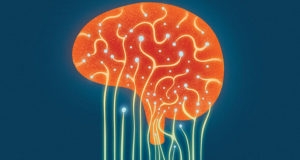
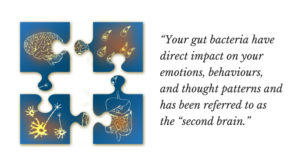
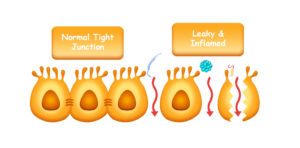
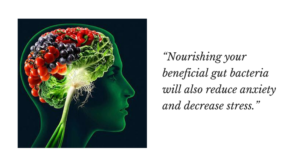
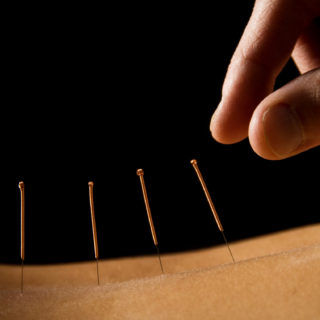



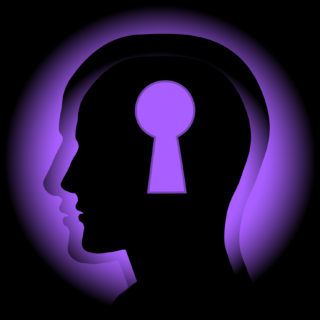












No Comments
Be the first to start a conversation